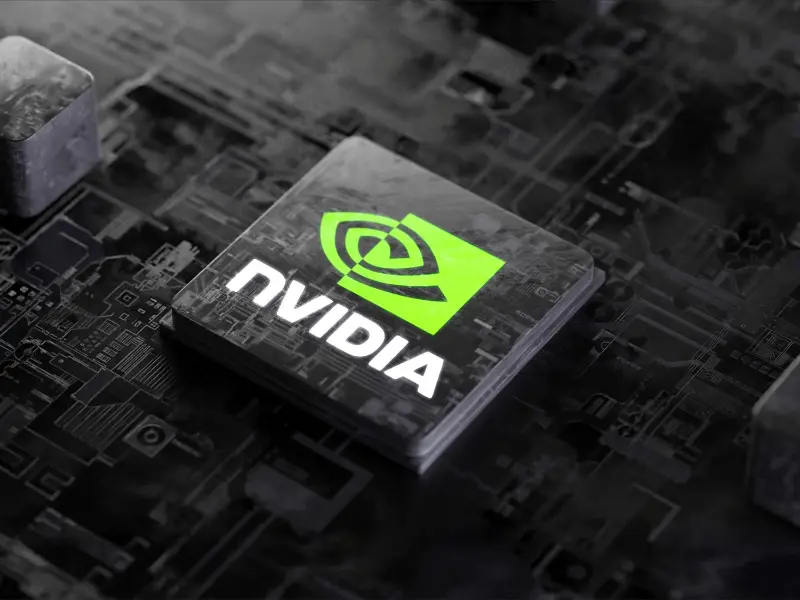- Nvidia’s Strategic Expansion: Nvidia’s collaboration with major Chinese EV brands reflects its strategic commitment to advance automated driving systems in the dynamic and competitive Chinese electric vehicle market.
- Navigating Geopolitical Challenges: Despite heightened U.S. export controls, Nvidia’s move highlights the delicate balance semiconductor companies must maintain in navigating Sino-American relations while capitalizing on the growth opportunities in China’s automotive technology sector.
Nvidia has announced that four Chinese electric vehicle brands, namely Li Auto, Great Wall Motor, Zeekr, and the new EV unit of Xiaomi, will utilize its DRIVE technology for automated driving systems. This move highlights Nvidia’s commitment to expanding in China, despite stricter export rules imposed by the U.S. government. The growing electric vehicle market in China is crucial for Nvidia’s automotive technology business, as Chinese automakers compete to introduce advanced in-vehicle infotainment displays and automated driving functions. However, U.S.-based chip manufacturers, including Nvidia, face challenges in meeting Chinese demands for powerful chips while complying with tighter U.S. controls on semiconductor exports to China. Additionally, Nvidia is collaborating with WPP, Lotus, and other companies to develop more advanced online shopping tools for the automotive industry, utilizing its technology to create online shopping sites with three-dimensional graphics and lifelike visuals.
Also read: Shifting gears or stalling out? Honda’s bold US$14 billion EV gamble in Canada
Nvidia drives innovation in China’s electric vehicle sector through strategic partnerships
The collaboration between Nvidia and four major Chinese electric vehicle manufacturers – Li Auto, Great Wall Motor, Zeekr, and Xiaomi’s new EV unit – underscores the dynamic growth opportunities in China’s automotive technology sector. As Chinese automakers fiercely compete to introduce advanced in-vehicle infotainment displays and automated driving functions, Nvidia’s DRIVE technology positions itself strategically to cater to the burgeoning demands of the market. This collaboration signifies a synergy between international tech prowess and the rapidly evolving landscape of the Chinese electric vehicle industry, promising innovative solutions and advancements that could reshape the future of automotive technology.
Nvidia’s collaboration with Chinese electric vehicle manufacturers, including Li Auto, Great Wall Motor, Zeekr, and Xiaomi’s new EV unit, underscores the company’s commitment to advancing automated driving systems through its DRIVE technology. The integration of Nvidia’s DRIVE technology into the autonomous driving systems of these Chinese automotive brands signifies a strategic alliance aimed at enhancing the capabilities and sophistication of electric vehicles. Nvidia’s DRIVE technology, renowned for its prowess in processing complex algorithms and sensor data, is poised to contribute significantly to the evolution of autonomous driving in the rapidly growing Chinese electric vehicle market. This collaboration not only showcases Nvidia’s technological leadership but also positions the company as a key player in shaping the future of automotive innovation in China.
Nvidia expands collaboration with Chinese EV giants amidst heightened U.S. export controls, navigating geopolitical challenges in semiconductor market
In light of Nvidia’s decision to expand its collaboration with Chinese electric vehicle manufacturers despite heightened export controls from the United States, the move underscores the intricate dynamics of Sino-American relations and the challenges faced by semiconductor companies. The increasing importance of the Chinese electric vehicle market presents a significant opportunity for Nvidia, Intel, Qualcomm, and their counterparts. Simultaneously, the commitment to compliance with stringent U.S. export regulations on advanced semiconductor technologies poses a delicate balancing act for these companies in navigating the geopolitical landscape. This development prompts a broader discussion on the intricacies of global semiconductor supply chains and the implications of technological collaborations in the context of evolving trade relations between the United States and China.









